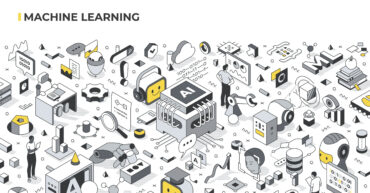Unmasking Fraud, Waste, and Abuse in Healthcare: An In-depth Analysis of its Impact and Real-world Examples
- July 5, 2023
- Posted by: Kulbir Singh
- Category: Healthcare Tech

Every day, I come across newsworthy accounts of convictions and legal settlements related to fraud and abuse in the healthcare industry across the globe. Numerous health care payers have dedicated teams, such as Special Investigation Units (SIUs) or forensics teams, who tirelessly work to combat healthcare fraud, waste, and abuse. However, it is important to understand what constitutes fraud, waste, and abuse and how it affects us. This article aims to shed light on these inquiries.
Fraud, waste, and abuse (FWA) in healthcare is a significant issue that affects the efficiency and effectiveness of healthcare systems. These terms refer to unethical activities that lead to unnecessary costs and potential harm to patients.
Fraud: Fraud involves intentional deception or misrepresentation that an individual knows, or should know, to be false, or does not believe to be true, and makes, knowing that the deception could result in some unauthorized benefit to themselves or some other person(s). Examples include billing for services not rendered, upcoding (billing for a more expensive service than was actually provided), and performing unnecessary services.
Waste: Waste refers to the overuse of services or other practices that, directly or indirectly, result in unnecessary costs to the healthcare system, including the Medicare and Medicaid programs. It is generally not considered to be caused by criminally negligent actions but rather by the misuse of resources. Examples include overutilization of medical services, mismanagement of resources, and inefficient processes.
Abuse: Abuse involves actions that are inconsistent with accepted, sound medical, business, or fiscal practices. Abuse directly or indirectly results in unnecessary costs to the healthcare system, including the Medicare and Medicaid programs. Examples include charging excessively for services or supplies, providing medically unnecessary services, and improper billing practices.
Impact of Fraud, Waste, and Abuse on the Healthcare System
The healthcare system is significantly impacted by FWA. It results in losses of money, lowers the standard of patient treatment, and erodes faith in the healthcare system.
Financial Impact: FWA causes healthcare systems to suffer significant financial losses. The National Health Care AntiFraud Association estimates that healthcare fraud costs the US economy tens of billions of dollars annually.
Care Quality: FWA can result in subpar patient outcomes. Patients might obtain therapies that are harmful or unneeded, or resources might be taken away from people who really need them.
Trust in the System: FWA undermines trust in the healthcare system. When patients, providers, and taxpayers see that the system is being exploited, it can lead to cynicism and lower engagement with the system.
Real-Life Examples of Fraud, Waste, and Abuse in the US Health System
Operation Brace Yourself: In one of the largest healthcare fraud schemes investigated by the federal government, medical equipment companies were found to have paid kickbacks and bribes in exchange for referrals by medical professionals working with fraudulent telemedicine companies for back, shoulder, wrist, and knee braces that were medically unnecessary.
Opioid Fraud: In 2017, a federal crackdown on fraudulent opioid prescription schemes led to charges against 412 physicians, pharmacists, and nurses nationwide. The healthcare providers were accused of wrongfully billing Medicare, Medicaid, and health insurance programs for over $1.3 billion.
Pharmaceutical Company Fraud: In 2012, GlaxoSmithKline agreed to plead guilty and to pay $3 billion to resolve fraud allegations and failure to report safety data. This is the largest healthcare fraud settlement in U.S. history.
Healthcare providers, authorities, and law enforcement organizations all still consider fighting FWA in the healthcare industry to be a top priority. Increased data analytics to identify anomalous billing trends, tighter enforcement measures, and increased monitoring of billing practices are some of these initiatives.
Disclaimer: The views expressed in this article are solely those of the author and do not reflect the opinions or views of the author’s employer. The information provided in this article is for general informational purposes only and should not be considered as professional or legal advice. The author takes no responsibility for any errors or omissions in the content and will not be liable for any losses, injuries, or damages arising from the use of this information.
A Large Language Model (LLM) is a type of deep learning model trained on massive text datasets to understand and generate human language.
Humans and artificial intelligence (AI) have been contrasted and compared frequently.Some worry that AI will drive people out of many professions, while others argue that AI will never fully replace human intelligence and creativity.
Autonomous vehicles, also known as self-driving cars, are like smart robots that can drive themselves without a human driver.



